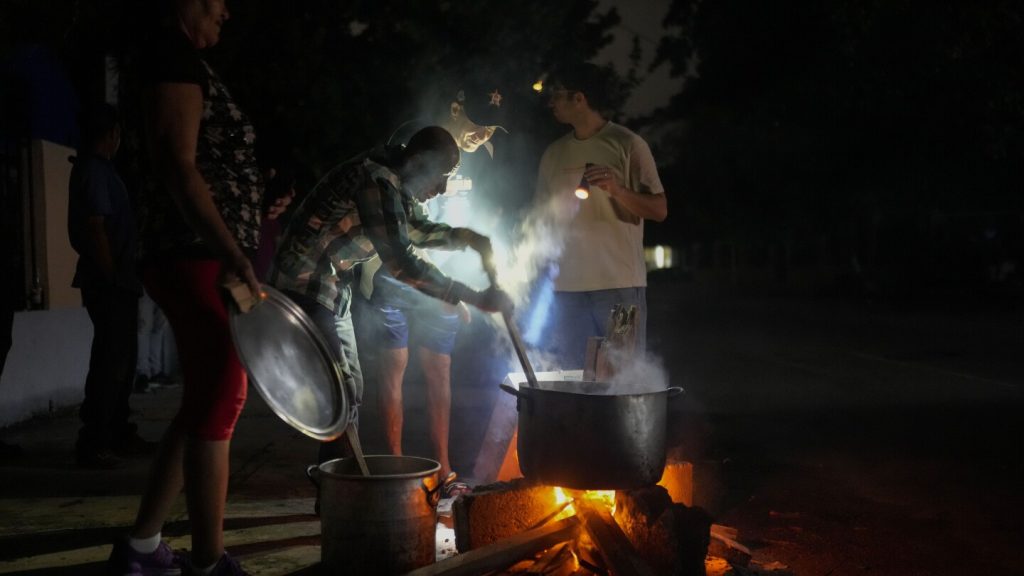Many Cubans are experiencing distress as the country faces a widespread blackout that has left much of the island without electricity for several days. Compounding the situation, Hurricane Oscar has made landfall on Cuba’s eastern coast, bringing heavy wind and rain. Energy Minister Vicente de la O Levy stated in a press conference that he hopes the electricity grid will be restored by Monday or Tuesday morning, but the storm may hinder the recovery efforts due to the impact on key power plants in the region. Reports of rain, thunderstorms, and damage to roofs and walls have been documented in the eastern provinces of Cuba.
The impact of the blackout extends beyond just lighting, affecting essential services like water supply that rely on electricity to function. Residents have resorted to cooking on improvised wood stoves to prevent food spoilage, causing desperation among many families. The failure of the Antonio Guiteras plant on Friday led to the collapse of the entire national electricity system, highlighting ongoing challenges with energy distribution in a country where power restrictions are common. Long lines have formed at reopened bakeries as citizens seek basic necessities like bread.
Cuba has faced its worst blackout in two years, reminiscent of the aftermath of Hurricane Ian in 2022, which caused significant damage to power installations. While some electricity was initially restored after the recent plant failure, the grid’s energy output remains far below normal capacity. Emergency measures have been implemented to reduce electricity demand, including suspending classes, shutting down state-owned businesses, and canceling nonessential services. The blackout was exacerbated by increased demand from residential air conditioners and breakdowns in aging thermoelectric plants.
Local authorities attribute the blackout to the strain on the system from small- and medium-sized businesses and residential air conditioners, exacerbated by inadequate maintenance of aging infrastructure and fuel shortages. Efforts to reconnect and restore power have been complicated by subsequent partial blackouts. Cuba’s energy minister mentioned offers of assistance from countries like Mexico, Colombia, Venezuela, and Russia to help address the crisis. Hurricane Oscar made landfall on Cuba’s eastern coast, bringing strong winds, heavy rain, and the potential for storm surges.
Forecasters predict significant rainfall in eastern Cuba over the coming days, with the storm expected to weaken as it moves northeast towards the central Bahamas. The situation remains precarious for residents without power, facing challenges in accessing essential resources and coping with the impact of the blackout. The Cuban government continues to work on restoring the electricity grid while dealing with the aftermath of the hurricane. The combination of a prolonged blackout and hurricane conditions has created a sense of urgency for both recovery efforts and the well-being of the affected population.


